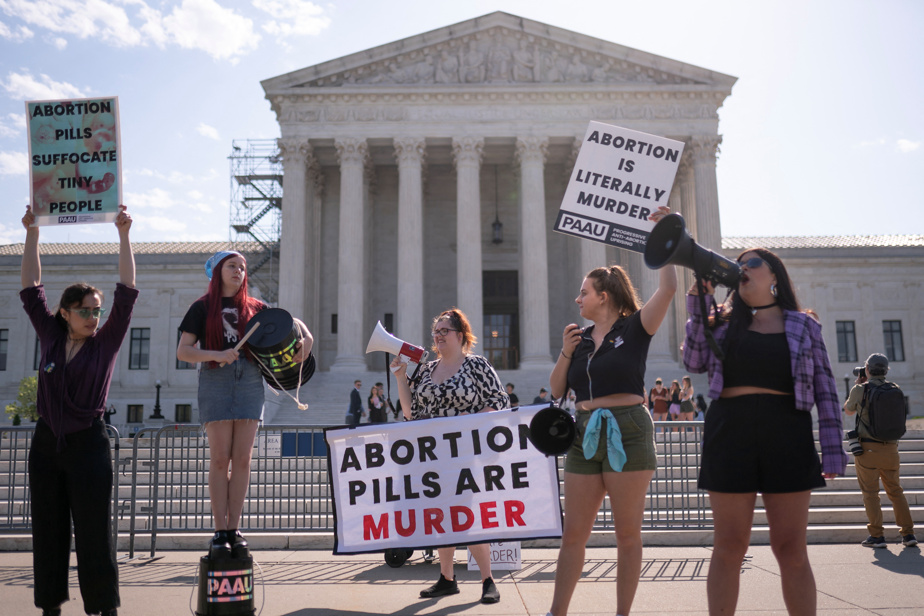(Washington) All eyes in the United States are again on Friday on the Supreme Court, which must rule on the fate of the abortion pill in the country following conflicting court decisions that have sown confusion.
Nationwide access to mifepristone is at stake. In combination with another drug, it is used for more than half of abortions in the United States.
The outcome of the case is extremely uncertain and hardly anyone ventures to predict what the conservative-dominated high court might decide after it struck down the constitutional abortion guarantee last year.
But some of the options at his disposal would wreak havoc, abortion rights advocates have warned, and could even challenge the authority of the Federal Drug Administration (FDA).
Without a stay by the Court, the “unprecedented lower court rulings would cloud the regulatory regime for a drug that the FDA has said is safe and effective under approved conditions,” argued on behalf of the Department of Health. Justice attorney Elizabeth Prelogar.
She also warned that if the high court decides to leave these judgments in force, the existing wafers of mifepristone would immediately become non-compliant and therefore could no longer circulate.
“It’s a really tough time,” Democratic congresswoman Pramila Jayapal told CNN on Thursday.
“If the Supreme Court rules in a way that restricts mifepristone, it would have huge consequences for women across the country. And that is why some states […] have already stockpiled mifepristone so that for a few years we will be able to continue supplying it,” she added.
Even in neighboring Canada, the expected decision is causing concern. Canadian Family Minister Karina Gould reiterated that her country intends to help American women if necessary.
“But we also have to make sure we think about their safety,” with US states wanting to “criminalize” seeking care elsewhere, she added.
More than five million American women have taken mifepristone since it was approved by the FDA more than 20 years ago.
The temple of American law had been seized urgently by the government of Joe Biden.
The conundrum began when a federal judge in Texas, known for his Christian faith and his ultraconservative positions and appointed by Donald Trump, withdrew the marketing authorization for mifepristone on April 7 after being seized by anti-abortion activists.
An appeals court in New Orleans, seized by the federal government, then allowed the abortion pill to remain authorized, but limited the access facilities granted by the FDA over the years.
His judgment amounted to prohibiting the mailing of mifepristone and returning to use limited to seven weeks of pregnancy, instead of ten.
The federal government then rushed to the Supreme Court. The latter temporarily maintained access to the abortion pill a week ago, suspending the decision of the court of appeal in order to have more time to examine the file.
The first suspension decided by the Supreme Court was valid until Wednesday just before midnight. But Judge Samuel Alito said Wednesday that it was extended by 48 hours, until “11:59 p.m. Friday, April 21”.
A coalition of anti-abortion doctors urged the high court on Tuesday to leave the appeal court ruling in place.
“Without a suspensive decision, mifepristone will cause even more physical complications, emotional trauma and even death in women,” they wrote.
The abortion pill is no longer officially available in some fifteen American states that have recently banned abortion, even if roundabout routes have been developed. The impact of restrictions or a ban on this pill would therefore primarily concern states where abortion remains legal – for many Democrats.

